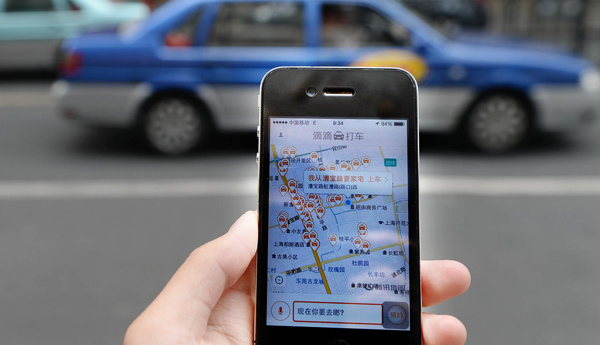 |
|
A Chinese mobile phone user uses the taxi-hailing app Didi Dache backed by Tencent on his smartphone in Shanghai, Oct 16, 2014. [Photo/IC] |
Hangzhou, in East China's Zhejiang province, is planning to eliminate taxi franchise fees paid to the government as it seeks to break an oligopoly on the industry.
With taxi-hailing apps now challenging a long-established cartel in the taxi industry, cab drivers have been feeling the pressure of increasing fees and more competition.
To help drivers earn more money, Hangzhou plans to scrap the government's portion of the management fees retroactively starting from January 1 this year, according to a draft guideline released on Monday.
The new policy will mean an average of 400 yuan ($63) deduction in fees for taxi drivers, Lu Xiande, vice chief of the city's traffic management bureau, said. The government would also refund nearly 100 million yuan collected so far this year.
Currently, taxi drivers in Hangzhou pay up to 8,000 yuan a month to register with one of a small number of large management companies.
China's taxi management system is characterized by a select number of large companies known for levying exorbitant operation fees, which are blamed for demoralizing cab drivers and result in poor service.
The emergence of taxi-hailing apps has challenged the current system, allowing customers to resort to a larger pool of private vehicles. But more options means more competition and the technology has increased pressure on cab drivers, leading to protests in some cities.
In response, several Chinese cities have pledged to remove the franchise fees.
In May, Yiwu city, also in Zhejiang, announced it would go a step further and remove the taxi license quota, which is blamed for further increasing the scarcity of cabs and making the oligopoly possible.
The guideline also promised to trim taxi ownership and management rights and establish two state-owned companies to regulate the market.
